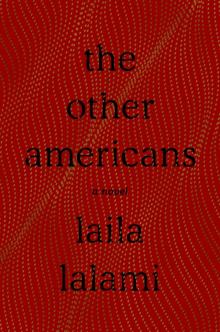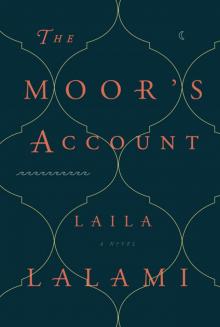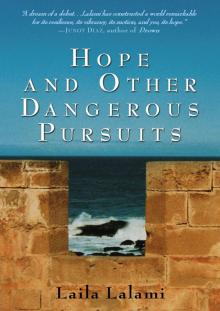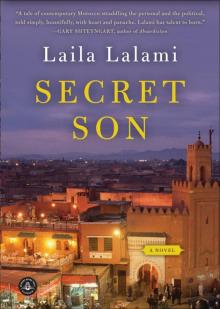- Home
- Laila Lalami
The Other Americans Page 5
The Other Americans Read online
Page 5
My mother glanced at me, a look of mild relief in her eyes; she wouldn’t have to meet or talk to someone new. From her file folder, Coleman pulled out another paper, and I noticed that her nails were bitten to the quick. It was a habit I had battled all through grade school and only conquered during middle school. The taste of the special polish I used to apply to my nails to make myself stop biting them came back to me now. Strong. Bitter. Lingering.
“I also have a preliminary report from CSU,” Coleman said.
I felt a surge of hope. Television shows had taught me that there were always clues in the crime scene, the autopsy, the lab report. I expected to hear about fingerprints, DNA evidence, shoe impressions, a cigarette butt carelessly tossed out of a window, a tire mark on the asphalt, a strand of hair retrieved with a pair of tweezers from the gutter. Instead, Coleman spoke of car paint. “Forensics recovered microscopic paint chips from the victim’s clothing, likely from the vehicle that struck him. White, it looks like.”
“How common is white as a color?” I asked.
“Very common, I’m afraid. For most car models.”
“So this is like looking for a needle in a haystack.”
Coleman’s face softened. “I wouldn’t go that far. We have to wait for the full lab report. Once they test the chips, they will be able to confirm the color, and maybe tell me more about their origin.”
“What about witnesses?” my mother asked. “Maybe someone saw something.”
“No, Mrs. Guerraoui. We canvassed the homes and businesses near the crime scene, but we haven’t found anyone who’s seen anything. I will continue to look. I will also put out a call for help in the Hi-Desert Star. That’s what the picture is for,” she said, tapping the photograph that my mother had taken out of its frame and left on the coffee table.
I remembered how well Jeremy Gorecki had spoken of this detective and, yes, she seemed very nice, and it was kind of her to come to the house when I’d called the police station for an update. Still, it didn’t seem that much was happening with the investigation. Three days had passed and in that time the killer could have hidden his car, painted it, disposed of it. Hell, he’d probably done all three. A tidal wave of grief washed over me and for a moment I felt unable to speak. Nothing about what happened made any sense. My father had often outrun disaster—the protests in Casablanca had moved him to California; the arson had made it possible for him to buy a diner. But now disaster had finally caught up with him.
Coleman closed her notebook and tucked her pen in her shirt pocket. “Thank you for the photo,” she said.
My mother reached for the pot. “More coffee?”
“No, thank you, Mrs. Guerraoui. I’d better get going.”
“Should I call you again tomorrow?” I asked.
“You can. But I will call you if I have any news.”
I walked the detective to the door and watched as she backed out of the driveway in her cruiser. Gusts of wind blew dust and dirt across the road. In the distance, a coyote’s bark turned into a howl.
Driss
It was a Saturday. The Saturday before finals week. I needed a break from Kant and Schopenhauer, so I went to have coffee with my friend Brahim at a little patisserie in downtown Casablanca, near the Arab League Park. Brahim and I had met a couple of years earlier, at the publication party for the winter edition of the magazine Lamalif. We both had poems in that issue. Mine was terrible, I don’t mind saying that now, but his showed promise. He published a few more, he was thinking about doing a collection. For me, though, poetry was nothing more than a hobby, my mind was on other things: Maryam and I had a baby girl, and I needed to finish graduate school if I wanted to get a better teaching job.
What Brahim and I talked about that day, I can hardly remember. It was just an ordinary day, although nothing about that year had been ordinary—the war in the Sahara was dragging into its sixth year, the price of flour and oil had increased catastrophically, and labor unions had called for a general strike. Hardly a week went by that spring when someone didn’t organize a protest against the government. But I do remember we weren’t talking about politics, because we were preoccupied with our exams, hoping we’d pass all our subjects in the first session so we could have the rest of the summer to ourselves. We sipped our coffees, both of us taking it black and chasing it with water. We said goodbye to one another outside the café, and went our separate ways. It was already half past one, I realized suddenly, and I was late for lunch. My wife wouldn’t like it. I was walking down the Rue Gouraud when an old woman called out to me from an apartment window three floors above. “What are you doing out, my son?” she asked as she pulled her shutters closed. “Go home, there’s trouble.”
“Where, Auntie?” I asked.
She pointed toward the Boulevard Hassan I. Only half-believing the old woman, I ducked into the next building and went up to the roof to check for myself. Standing in the middle of television antennas, I saw army tanks driving down the boulevard in a column, headed toward a mass of protesters at the intersection. In the distance, plumes of black smoke rose in the sky. A terrible, familiar fear settled over me. How was I going to get home? Perhaps, I thought, I could walk back toward the Arab League Park and try to catch a bus or find a taxi. I crossed the length of the roof to see if the Rue d’Alger was still safe, but found instead that a Jeep with red and green stripes was idling on the pavement. Abruptly it sped up and struck two teenage boys who were running away from the boulevard, then swerved off and chased after another teen. A girl. She couldn’t have been more than fifteen or sixteen. From the other end of the street, a police van drew up to her, cornering her next to a pharmacy with a crescent neon sign. Then a policeman jumped out of the Jeep and started beating her with a truncheon. Blood pooled around her head like a halo.
This is it, I remember thinking. This is the end of the regime. How could it survive when it was killing its own children in broad daylight? But just as the thought crystallized in my mind, one of the policemen spotted me on the roof, raised his gun, and aimed. Even from a height of four floors, I could see the black barrel pointed at me. I sank to my knees, realizing only by its sibilant sound that the bullet had missed me. With my back against the wall, I waited for the thump of police boots on the stairway. All afternoon I waited. Even as night fell, I waited. I could still hear the sirens of police cars. Tires screeching. Glass breaking. People screaming. The wind in the palm trees.
Dawn brought with it a strange silence. I went down the stairway, walked across the empty lobby, down the street with its smashed storefronts, past the bloodied corpse that still lay under the flickering neon sign, and went home, where I found Maryam beside herself with worry. All night she had stayed up listening, too, hoping to hear footsteps, yet fearing they were the wrong ones. She hadn’t known if I was alive or dead and she’d been too afraid to go to the police. If I’d been arrested, asking the police about me would do no good; they would not acknowledge it. And if I hadn’t been, asking them about me might be used as evidence that I’d taken part in the protest. “I wasn’t arrested,” I said, taking her hand, trying my best to comfort her. “I’m fine.”
But when I told her about the policeman who’d pointed a gun at me, she panicked.
“Are you sure you weren’t followed?” Her gaze shifted to the door.
“No,” I said. “No, I don’t think so.”
Still, our fear didn’t dissipate, and by the afternoon we heard from Brahim’s sister that he had been arrested. No one knew where he was being held. Others in our circle of graduate students had also been swept up. It was a matter of time before they would be forced to give up the names of supposed accomplices. Maryam’s relief that I had been spared the same fate turned into a vow: she would never go through this ordeal again. Her older brother lived in Culver City and had once offered to sponsor us for visas to the United States.
She said sh
e wanted to leave.
We landed at Los Angeles International a few months later, only to find the Golden State in the middle of a recession. After she’d dropped out of college, my wife had worked as a receptionist in a doctor’s office in Casablanca, but here in California no one was hiring, especially not a new immigrant with a shaky grasp of English pronunciation. And I was a graduate student in philosophy; all I knew was how to pontificate about Sartre or Lévinas. But I came from a long line of bakers—my father and grandfather ran neighborhood ovens all their lives—and when I heard from Maryam’s brother about a donut shop in the Mojave that was up for sale, I said we should try to buy it.
“You?” Maryam asked. She couldn’t believe that the graduate student who spoke so fervently about the plight of workers laboring under the boot of capitalists suddenly wanted to start a business. I told her we had nothing to lose but the futon we’d been sleeping on since we landed. Besides, I pointed out, I wasn’t the one who’d been desperate to move here. We had to do something.
Before leaving Casablanca, we had sold my car, her jewelry, and all our belongings, but that only added up to a few thousand dollars, so we borrowed the rest from her brother and sank everything into the shop, which we renamed Aladdin Donuts. I repainted the walls, fixed rickety chairs, and replaced the light fixtures. The menu above the counter listed some items I wasn’t sure I could reproduce: apple fritters, cinnamon rolls, bear claws. I tore it down and decided to sell only donuts and coffee. Donuts were not that different from our sfenj, and I experimented with the dough until it became as soft as the one I had grown up with.
For the first year, Maryam and I slept with Salma between us on an air mattress we laid out in the utility room. I baked and worked the cash register, and Maryam cleaned and handled the bookkeeping. Every penny that did not go toward bills or supplies went to pay her brother back for the money we had borrowed. On Fridays, we went to senior centers, police stations, local schools, construction sites, bringing samples in pink boxes that bore the logo of our shop. People who tasted my special honey glaze raved about it to their friends. Word began to spread. The shop turned a profit. We were able to move into a proper apartment and, three years later, into a house. Nora was born. Maryam quit the shop to take care of the girls. That was how we came to this country.
Efraín
Marisela was waiting up for me, with the newspaper spread out on the kitchen table. I thought it was La Prensa, which she buys from Kasa Market sometimes, but when I sat down across from her with my plate and soda, I saw that it was the Hi-Desert Star. I kept my eyes on my food. I just wanted to enjoy my torta de carnitas. I deserved that, at least, after the rough day I’d had. Enrique and I got lost for an hour in Landers, trying to find the duplex we were supposed to clean, and when we finally got there, the lady of the house was mad at us and followed us from room to room while we shampooed the carpets, making us go over the same dirty spots, even though the stains were old and wouldn’t come out. Then she tried to use a coupon to pay, and Enrique had to tell her three times that those coupons were for Rob’s Carpet Cleaning and we worked for Ron’s Steam Cleaning and Upholstery. The delay pushed all our other appointments back and in the evening when we returned the van, Ron called us careless and stupid and lazy. All I wanted now was some peace.
But my wife nudged the paper toward me.
“I don’t read English,” I said, irritation bubbling up in my voice, although the truth is that I can read some, enough to fill out a job application or make sense of the notices pinned on the corkboard at the grocery store. HOUSE FOR RENT. CAR FOR SALE. JANITOR NEEDED.
“It’s about the accident,” she said, tapping her index finger on an article to draw my attention to it. Marisela took an English class some years ago, before the children were born, and now that they’re in school she goes to the library with them on Saturdays and sits beside them while they read, so she’s getting better and better. She’s the one who talks to the landlord when there’s a leak in the bathroom or if we’re behind on the rent. “It says the police is asking for the public’s help with the case. Look. Right here.”
“I don’t have my reading glasses,” I said.
Marisela pulled them out from her apron pocket and set them in front of me on the table. At the time of these events, she was working for a senior-care center, bathing and grooming people who had forgotten how to do it for themselves. That job changed her. It gave even the smallest of her gestures a disarming patience.
I pushed the reading glasses off to the side. “Later,” I said, and took a bite of my torta. But it didn’t taste right. Even though it had been wrapped in aluminum foil and kept on the stove warmer, the bolillo had soaked up the sauce and the meat was dry. It seemed to me the day’s frustrations would never end. “What is this?” I asked.
“They’re looking for witnesses.”
I had told her a million times that I wasn’t a witness. I didn’t see the accident. All I saw was the man falling to the ground, it wasn’t the same thing. I split the bolillo open and, pushing aside the onions and chiles, poked at the meat with my knife. “Did you use pork?”
“It says the victim lived in Yucca Valley.”
“You know I don’t like it when you use beef in the tortas. It doesn’t taste the same.”
“He was sixty-one years old. And he was a father and a grandfather.”
She said this just to make me look at the newspaper, and finally I put on my reading glasses. In the photograph, an old man with a wide forehead and curly white hair reclined in an armchair, smiling at someone out of the frame. On his lap was a paper plate with a crumpled napkin and a half-eaten piece of chocolate cake. It was the kind of picture you might take at Christmas or a birthday party, when the house is full of family and friends and everyone is dancing and having a good time. The caption said Driss Guerraoui. What a strange name, I remember thinking. “Where is he from?” I asked.
Marisela leaned closer, and read the article again. “It doesn’t say.”
He couldn’t have been American, that much I knew. He had to have been an immigrant like me. And Guerraoui sounded like Guerrero, but it wasn’t a Spanish name. With my knife, I flipped the bread back on the meat. “This isn’t pork,” I said.
“It is. I just trimmed all the fat,” Marisela said.
That was another thing that had changed since she’d started working for the senior-care home. She wanted us to eat “healthy” things. No more chicharrones while we watched television. No ice cream after dinner. Only one spoon of sugar in our morning coffee. But now that she was trimming fat from my carnitas, she might as well have been trimming joy from my life.
“Do you want some more sauce?” she asked, patting my hand. “I can add more sauce.”
She took my plate to the counter and brought it back a few minutes later. I took another bite. The meat was moist now, but still it didn’t taste the same. So much depends on the little things. If I had turned left at the fork in the road that morning, Enrique and I wouldn’t have been late to our first appointment, the lady of the house wouldn’t have been so angry, we would have kept our schedule, the boss wouldn’t have called us lazy. But I drove, and Enrique read the map; that was always our arrangement. When he glanced at the street signs and said, Go left, I went left. Another little thing: if I’d taken the Saturday night shift instead of the Sunday night shift at the motel, I wouldn’t have been traveling down the 62 on the night of the accident. I would never have laid eyes on this man, this Guerraoui. I wouldn’t even know his name.
“They’re looking for anyone who might have seen the runaway car,” Marisela said.
“I told you, I didn’t see it.”
“You said it was white.”
“I said it could be white, but really I’m not sure. And even if I was, I’m not talking to the police. I can’t take that chance.”
If I thought that would stop my wife, I
was wrong.
“Amor,” she said, nudging the paper toward me again, “it says you can call anonymously. On this hotline.”
I should never have told her about the accident.
Jeremy
At the end of my shift the next day, I found myself at the Joshua Tree jail for another meth arrest, this time a middle-aged woman whose neighbor called the police when he found her sitting on the roof of his shed. While the paperwork was being processed, I went to get some water from the storage room, where canned beans, powdered milk, and bags of rice and pasta were stacked in columns that reached the ceiling. The overhead lights cast an unsteady glow over the gray concrete floors, and the only sound I could hear were metal doors closing somewhere down the hallway. The jail always unsettled me, no matter how often I came inside. I tossed the paper cup in the trashcan and hurried out to the front office, where I found Stratton booking a new suspect. Fierro.
I stepped inside the office. “Lomeli,” I called.
“Yeah?”
“What’s this guy in for?”
“Criminal threats. Destruction of property.” Lomeli adjusted his reading glasses over his nose and looked at the form, running his finger down the page until he reached the appropriate line. “Smashed his ex-wife’s car. Says here it’s a Mustang coupe. Broke the windows, took a bat to the siding, slashed the tires.”
“Jesus.”
“Must’ve been something.” With a glance at the booking counter, Lomeli whistled, whether in admiration or disapproval, I couldn’t tell. Lomeli himself had been divorced three times, a fact I had trouble reconciling with the romance novels stacked on his desk, their spines labeled YUCCA VALLEY LIBRARY. “You know this guy?” he asked.
“We served together in Iraq.”

 The Other Americans
The Other Americans The Moor's Account
The Moor's Account Hope & Other Dangerous Pursuits
Hope & Other Dangerous Pursuits Secret Son
Secret Son